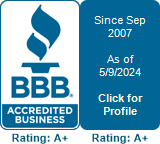
Every year, there are substantial changes to the tax code. These changes are best handled by professionals in the field, who get annual training to prepare them for the coming years. Businesses who want to ensure that they stay in the black and out of the auditor’s eyes should hire a tax professional. Many of the changes have to do with the Affordable health care Act.
Coverage Limits
The great news for small-business owners who have fewer than 50 employees is that they are not required to offer health care coverage to their employees. In addition, employees who work under a certain amount of hours and who are contracted and outsourced are not eligible for coverage.
Proof of Insurance
Since the requirement for health care coverage has become mandatory, filers have to submit IRS Form 1095 with their taxes as proof of insurance. Employers who provide insurance for their employees are responsible for seeing that each employee receives a completed 1095 form. In 2017, the mandated deadline for employees to receive this form is the same date that they must receive their W2s: Jan. 31.
Businesses are responsible for accurate reporting of health care coverage so that they and their employees can avoid stiff penalties. For assistance in navigating this year’s massive changes, contact Williams & Associates Tax Services at 910-392-1040.













